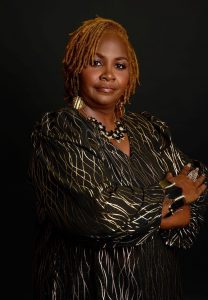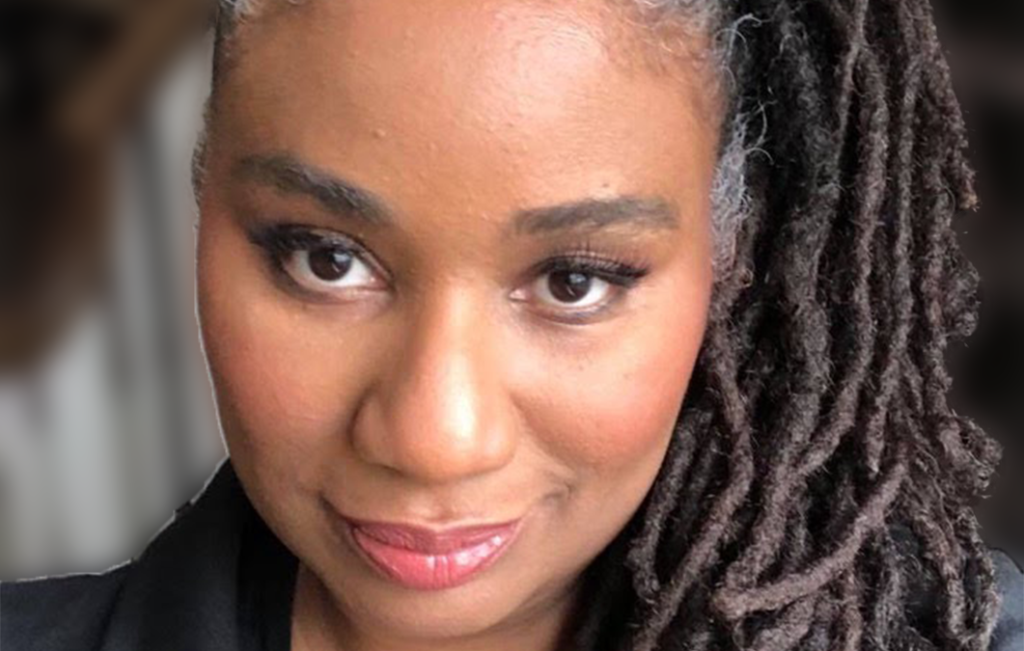Lisa Jenkins is the Founder /Chief Executive officer of Kingdom Builder’s Family Life Center (KBFLC), a non-profit organization geared towards assisting domestic abuse survivors. As a long-term victim advocate and case manager, she is also a domestic abuse survivor. Within her organization, her mission is committed to changing the narrative of underserved individuals, families, and youth impacted by domestic abuse, sexual assault, and human trafficking. Through first-hand experience from her own past of domestic abuse, Lisa has become a spokesperson for survivors all over.
We had the pleasure to speak to her and learn more about her endeavors in an interview below.
What inspired you to become involved in the nonprofit sector, specifically in assisting victims of domestic violence?
I left my first marriage in 1996 due to abuse and worked at various social services organizations across the country, including America Works, Women’s Housing and Economic Development, and Welfare to Work programs in NY. I volunteered extensively to help people leaving domestic violence situations, providing motivational speaking, teaching computer skills, and advocating for victims. I began my civilian career in the Army from 2008 – 2012 in Germany, where I was a Victim Advocate and Coordinator of Emergency Placement. In these positions, I arranged care for children of military families taken out of homes due to child abuse or neglect and advocated for victims of child abuse or domestic violence.
At Fort Carson, I was employed as Family Advocacy Program Specialist, Emergency Placement Coordinator, Employment Readiness Program Manager, and Victim Advocate. During my five years at Fort Carson, I was the Victim Advocate for approximately 250 victims of domestic violence. The majority were men, women of color, and young adults ages 19 to 24. I also managed all Domestic Violence Month activities to bring awareness of domestic violence to the base. I launched Ft. Carson’s first Domestic Violence Conference; I started annual candlelight vigils for victims of domestic abuse and created an annual domestic violence awareness walk/run. I also facilitated a Domestic Violence Support Group on Fort Carson, allowing soldiers and family members affected by domestic violence to access external resources and peer-to-peer support.
I have extensive training in helping victims of child abuse or domestic violence. I have 80 hours of sexual harassment and assault training, 80 hours of victim advocacy training, three days of adverse childhood experience training, and 40 hours of domestic violence training. I completed a 2-day Adverse Childhood Experiences (ACE) training by Peaceful Household in May 2019 and a Trauma Informed Care Practitioner Certificate course from the Colorado Professional Development Center in August 2019. I hold a bachelor’s degree in social work and a master’s degree in education.
In 2013, I stepped out on faith and Founded Kingdom Builder’s Family Life Center, then another leap of faith in 2018 when I resigned from my government job and became the 1st full-time employee at the organization as the CEO.
Can you tell us about the mission and goals of your organization in supporting victims of domestic violence?
Our Mission: Kingdom Builder’s Family Life Center is committed to changing the narrative of underserved individuals, families, and youth who have been impacted by domestic violence, sexual assault, and human trafficking. We do this through advocacy, education, case management & mentorship.
Our Vision: Kingdom Builder’s Family Life Center envisions a community without domestic/interpersonal violence.
How do you envision the CEO’s role in addressing domestic violence victims’ needs and advocating for their rights?
The role of a CEO in addressing domestic violence victims’ needs and advocating for their rights can be significant and impactful. While the primary responsibility of a CEO is to lead and manage the organization, they can leverage their position and influence to create a positive impact in society. Here are some ways a CEO can address domestic violence victims’ needs and advocate for their rights:
Corporate Policies: The CEO can ensure that the company has comprehensive policies in place to address domestic violence in the workplace. These policies can include providing support to victims, offering paid leave or flexible work arrangements, and establishing a zero-tolerance policy for domestic violence.
Employee Support: CEOs can prioritize the well-being of their employees by providing resources and support services. This can include establishing employee assistance programs (EAPs) that offer counseling, referrals to local support organizations, and access to legal advice for victims of domestic violence.
Training and Education: CEOs can implement training programs to raise awareness among employees about domestic violence, its signs, and how to provide support. This can include educating managers and supervisors on how to address domestic violence situations sensitively and confidentially.
Partnerships with Organizations: CEOs can collaborate with local organizations and nonprofits that work with domestic violence victims. By partnering with such organizations, the CEO can support their work financially or through in-kind contributions, as well as leverage their own influence and resources to raise awareness about domestic violence.
Public Advocacy: As a public figure, a CEO can use their platform to advocate for policies and legislation that protect domestic violence victims and their rights. They can speak at conferences, participate in panel discussions, or write opinion pieces to raise awareness about the issue and promote change.
Philanthropy: CEOs can allocate a portion of their company’s resources or their personal wealth to support organizations that provide shelter, counseling, legal aid, and other services to domestic violence victims. By doing so, they demonstrate their commitment to addressing the issue.
Internal Culture: CEOs play a crucial role in shaping the internal culture of an organization. They can foster an inclusive and supportive work environment that encourages open dialogue, empathy, and respect. This can create a safe space for victims of domestic violence to come forward and seek help without fear of judgment or reprisal.
It’s important to note that the CEO’s role is not limited to the actions mentioned above. The approach may vary depending on the industry, company size, and location. However, by taking a proactive stance and utilizing their influence, CEOs can contribute to a broader societal effort to address domestic violence and support its victims.
What strategies or initiatives has your organization implemented to increase awareness of this issue and create change?
Since 2019, when we received funding to support survivors, we served 65 people in 2019, 55 people in 2020, 123 people in 2021, and 128 people in 2022. We have nine years of experience operating the program, including three years on a large scale. Services offered through the MBSK program include crisis intervention, emergency, transitional housing, case management, victim advocacy, professional therapy, peer support groups, and various life-skills training classes, many of which are provided in-house.
We host yearly events on Domestic violence education and prevention and invite the community to join. This year we are hosting the 2023 Changing the Narrative Domestic Violence Conference professional training conference. It allows people from various backgrounds to come together and explore strategies to end family violence. Our goal is to offer a variety of workshops that address the conference theme through several family violence and sexual assault-related topics. We want to connect victims and survivors, advocates, service providers, and other professionals working to address domestic violence.
How do you ensure that the services provided by your organization are accessible and culturally sensitive to a diverse range of domestic violence victims?
Historically, people of color who are trauma survivors are much less likely to report victimization partly due to mistrust of systems that are largely designed and run by white power structures. Kingdom Builders recognizes that marginalized groups can be unintentionally re-victimized if support programs do not fully understand how their struggles are impacted by race. Survivors of trauma will be most likely to develop trust and accept assistance when support is given by people that look like them and who understand their trials through personal experience and cultural affinity.
African American survivors of trauma may be less likely to report crimes to the police due to systemic racism within police departments – the Colorado Springs community has had several incidents in the last few years that have deepened mistrust between the African American community and the CSPD. Additionally, most victim service providers are not located near traditionally black neighborhoods and are not easily accessible to victims in crisis. The African American population in Colorado Springs is highly concentrated in the southeast portion of the city, near KBFLC’s offices. In 2023, through another grant opportunity, we hope to purchase a new transitional housing unit in this neighborhood, allowing African American families to remain close to the churches, schools, community centers, civic groups, and social supports that they have already established.
We serve every race, but our focus has been to provide services to those underserved and who would be less likely to seek services. And the above numbers tell a story.
How do you collaborate with other organizations and agencies to create a network of support for victims of domestic violence?
We realize that not one organization can support everyone, so we pride ourselves on building partnerships with other organizations in the community. We support crime victims in whatever capacity.
To learn more about Lisa Jenkins, visit: https://kbflc.org/
Follow Us On Social Media!




